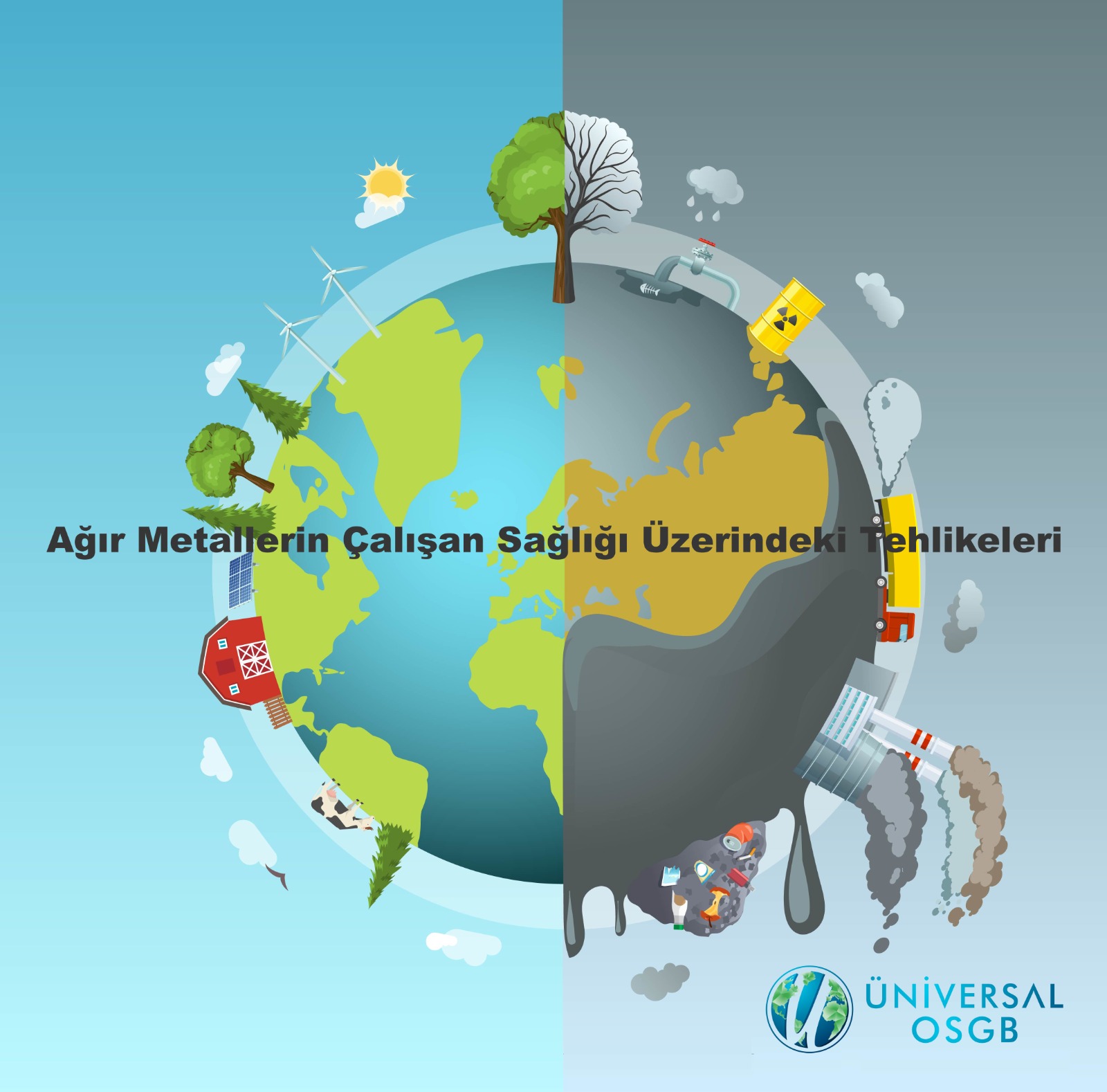
What are the Dangers of Heavy Metals on Workers' Health and What Precautions Should Be Taken?
Heavy metals are elements that are widely used in many sectors such as industry, mining, chemistry and recycling. However, these metals have serious and long-term hazards on employee health. Exposure to heavy metals such as lead, mercury, cadmium, arsenic can negatively affect both the physical and mental health of employees. Therefore, understanding the dangers of heavy metals and taking preventive measures are of great importance in protecting employee health.
Dangers of Heavy Metals on Employee Health
1. Respiratory Diseases
Inhalation of heavy metals as dust or smoke can accumulate in the lungs and lead to diseases such as chronic bronchitis, asthma and lung cancer. Cadmium and chromium, in particular, can cause serious lung damage when inhaled into the body.
2. Neurological Damage
Heavy metals such as lead and mercury can damage the nervous system. This condition can lead to headaches, fatigue, impaired concentration and memory loss in employees. It can also increase the risk of neurodegenerative diseases such as Parkinson's disease and Alzheimer's in the long term.
3. Kidney and Liver Damage
Heavy metals negatively affect kidney and liver functions when they accumulate in the body. Especially metals such as lead and mercury can accumulate in the kidney tissues and lead to kidney failure. Liver damage, on the other hand, worsens the general state of health by making it difficult for the body to purify itself from other toxins.
4. Cancer Risk
Various heavy metals (for example, chromium and arsenic) are known as carcinogenic substances that increase the risk of cancer in employees. Especially in the case of long-term exposure, there is a high probability of cancer formation in the organs where these metals accumulate.
5. Effects on Reproductive Health
Heavy metals that negatively affect reproductive health in male and female employees can cause fertility problems and pregnancy complications. Lead and cadmium, in particular, can lead to serious consequences such as low birth weight and developmental problems.
Employee Health Protection and Precautions
1. Regular Health Screenings and Follow-Up
Regular monitoring of the health status and risk groups of employees often be given a health screening to allow early detection of possible health problems. Quick realisation of health problems that are caused by heavy metals for blood and urine tests should be done.
2. Personal Protective Equipment (PPE)
In workplaces where heavy metal exposure is intense, it should be made mandatory for employees to use the correct protective equipment (mask, gloves, special clothing). Masks with a particle filter should be used to prevent heavy metals ingested by respiration.
3. Workplace Environment Monitoring
Air and surface measurements should be carried out regularly at work, heavy metal levels should be checked. Necessary engineering measures should be taken to ensure that the levels of heavy metals present in the environment remain below the permissible limits. A particularly good ventilation system will reduce the distribution of metal dust accumulated in the environment.
4. Education and Awareness
Informing employees about the dangers of heavy metals allows for a more conscious implementation of safety procedures. Employees should be provided with training on safe working with heavy metals, reducing exposure and what to do in emergency situations.
5. Waste Management and Cleaning Procedures
In areas working with heavy metals, proper waste management is of great importance. Proper disposal of chemical wastes prevents metal accumulation. In addition, regular cleaning and sterilization of work areas also minimizes the risk.
6. Occupational Safety and Working Time Regulations
The working time should be regulated according to the exposure level of the employees. In addition, it should also be ensured that occupational safety specialists are assigned at work and conduct periodic reviews. The risk can be reduced by measures such as employing at-risk employees for less time or changing positions.
The dangers of heavy metals on employee health are serious and may cause damage to both employees and enterprises if the necessary measures are not taken. Regular health screenings should be conducted for employees who are exposed to heavy metal risk at work, awareness should be increased by providing trainings. It is possible to minimize the risk of heavy metals thanks to measures such as personal protective equipment, environmental monitoring and waste management. Investment in employee health is the most important step that increases productivity and safety in the workplace.
Üniversal OSGB
Occupational Safety and Worker Health Center


